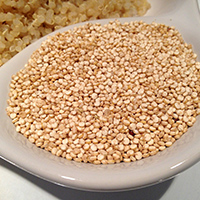
Depression can be experienced on different levels and driven by various factors, including: insufficient nutrient intake, unhealthy lifestyle, chronic disease, hormone imbalances, challenging circumstances and emotional trauma, to name just a few.
Exercise
Physical exercise promotes the release of various brain chemicals involved in uplifting the mood. Partaking in a form of exercise that you truly enjoy adds to a general feeling of joy, over and above an increase in these brain chemicals. Aim for 2-3 sessions of physical exercise per week, even if it’s just 20 minutes at a moderate intensity.

Serotonin
Serotonin, a brain chemical referred to as the ‘happy hormone’, is at a biological level responsible for a happy, uplifted mood. The good news is that the body has the ability to produce sufficient amounts of serotonin naturally if the correct building blocks (nutrients) are adequately provided:
- Several foods are particularly rich in nutrients required for serotonin production: whole rolled oats, free range chicken, avocados, bananas, cashews, almonds and dark green leafy vegetables (spinach, kale, mustard greens, etc.). Eggs, salmon, walnuts and chia seeds provide nutrients that support communication between brain cells, thereby improving the brain’s ability to regulate mood.
- Organic sources of the mentioned foods may ensure optimal nutrient intake and minimum exposure to toxins, which is another factor to consider in depression. A diet rich in whole foods (unprocessed, unrefined and fresh) will contribute to the intake of a variety of nutrients that supports the body’s serotonin production and mood regulation.

Sugar Levels
Daily exposure to natural sunlight assists the body to produce its own vitamin D, which is required for serotonin production and hormone regulation. Aim for 10-15 minutes of unrestricted sun exposure per day.
Regular intake of sugar, alcohol, caffeine and artificial sweeteners may all negatively influence mood. They may contribute to mood swings, depression, anxiety and a dysregulated mood in general. Avoiding these dietary components or reducing intake of them is suggested to support emotional well-being and overall health.
Imbalanced blood sugar levels have been shown to be a key driver in imbalanced mood and heightened appetite (especially for sugar and starchy foods). Balancing blood sugar levels can be attained by avoiding refined starches (white bread, pizza, pasta, pastries, sugar, etc.) and instead opt for high quality carbohydrate sources: vegetables, fruit, whole rolled oats, brown rice and quinoa. Combining carbohydrates with a protein source (e.g.: pulses, beans, a handful of nuts, etc.) is also useful to regulate blood sugar levels.

Lavender
If you enjoy taking relaxing baths, add a few drops of ylang-ylang, lavender and rose essential oils to the water and soak in the bath for at least 15 minutes. These oils have been indicated in lifting the mood and calming the nervous system. Lavender is also indicated in promoting deep, restful sleep and thereby helping the body to recuperate and for the brain to discharge any deep-seated negative emotions. Inadequate or poor quality sleep may significantly influence mood. Most people will attest to feeling moody the next day after too little sleep.
Digestive health is important for emotional well-being, first of all to ensure that nutrients required for serotonin production are absorbed, but also to support serotonin production in the gut (it is estimated that 90% of serotonin is produced in the digestive tract). If you suspect that your gut health is sub-optimal, it may be useful to see a natural health practitioner who will tailor a personalised program to support your digestive function.

Herbal Medicine
There are several useful herbal remedies associated with mood regulation and to alleviate depression, which you can also discuss with your natural health practitioner to make sure you’re given the most appropriate herbal remedy and dose according to your current health, presenting symptoms and other factors such as age and medication).
Chronic stress may directly contribute to depression, especially if the stress is related to emotional and social challenges. Chronic stress may deplete the body’s nutrient stores and thereby reduce the amount of nutrients available to produce serotonin and support overall well-being. Chronic stress has also been shown to reduce the amount of circulating serotonin, thereby impacting mood. Chronic stress can be supported through a nutrient-dense diet, healthy lifestyle habits, deep breathing exercise, and identifying and dealing with its cause.

Hobbies
Regularly partake in hobbies or activities that you enjoy, whether it’s knitting a sweater, scrapbooking or sitting in nature. Turn off those electronic devices that not only distract, but may be implicated in causing biological changes that contribute to depression.
Often a change in attitude can be the key turning point when it comes to overall emotional well-being. Self-limiting and self-sabotaging beliefs can keep us in a hopeless, helpless and depressed state of mind. Gaining a fresh perspective on your life and your situation can shift your attitude towards a more self-nurturing attitude, which may bring about a deeper sense of contentment, acceptance and appreciation of life, simply for the joy of being you and being alive.

Seek advice from your health practitioner before changing your diet or taking other remedies, particularly if you are on medication.
By Jeanne Van Zyl for CNM

